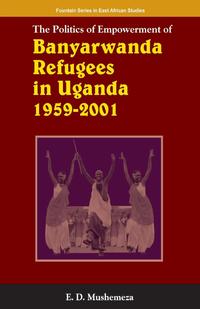The Politics of Empowerment of Banyarwanda Refugees in Uganda 1959-2001 introduces empowerment discourse to the nexus between politics, security; and forced migration and refugees. Conceptualized as a group process where people, who lack their share of valued resources, strive to gain greater access to, and control over, those resources; empowerment of Banyarwanda refugees was possible through a protracted struggle. The book explores how the Banyarwanda refugees achieved reasonable levels of integration in Ugandan society because of similar demographics, social, economic, and cultural characteristics with the Ugandan population in the areas they settled. Had the Ugandan state not broken down in the late 1970s and 1980s, these refugees would have, perhaps acquired naturalization - a veritable form of empowerment. In contrast, although most Hutu and Tutsi refugees achieved meaningful levels of integration (as some were treated badly and abused with derogatory language), their leaders and some of the elites never gave up the dream of returning home. The book concludes that violent conflicts emerge because of a violation of human rights and denial of access to scarce resources, and Rwanda and Africa as a whole must build institutions that allow popular participation in decision making, transfer of political power from one group or generation to the other, and generally, to address the question of democracy and good governance. Это и многое другое вы найдете в книге The Politics of Empowerment of Banyarwanda Refugees in Uganda 1959-2001 (Elijah Dickens Mushemeza)
The Politics of Empowerment of Banyarwanda Refugees in Uganda 1959-2001 Elijah Dickens Mushemeza
Подробная информация о книге «The Politics of Empowerment of Banyarwanda Refugees in Uganda 1959-2001 Elijah Dickens Mushemeza». Сайт не предоставляет возможности читать онлайн или скачать бесплатно книгу «The Politics of Empowerment of Banyarwanda Refugees in Uganda 1959-2001 Elijah Dickens Mushemeza»
